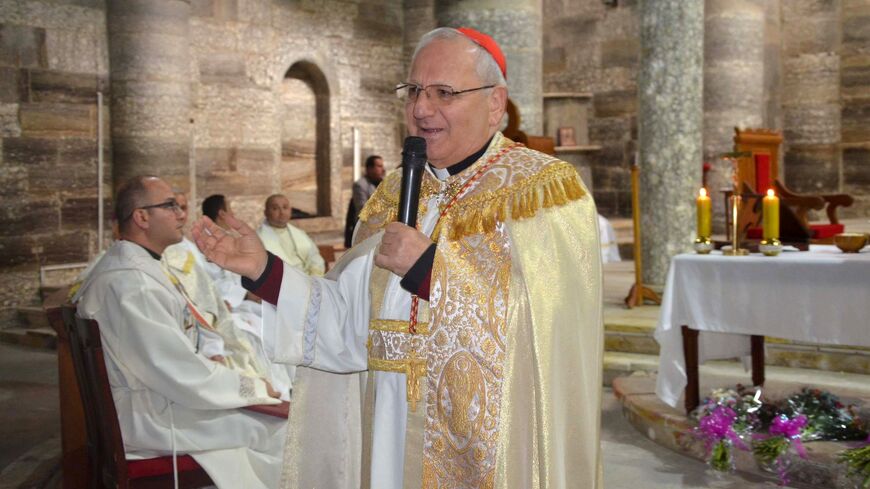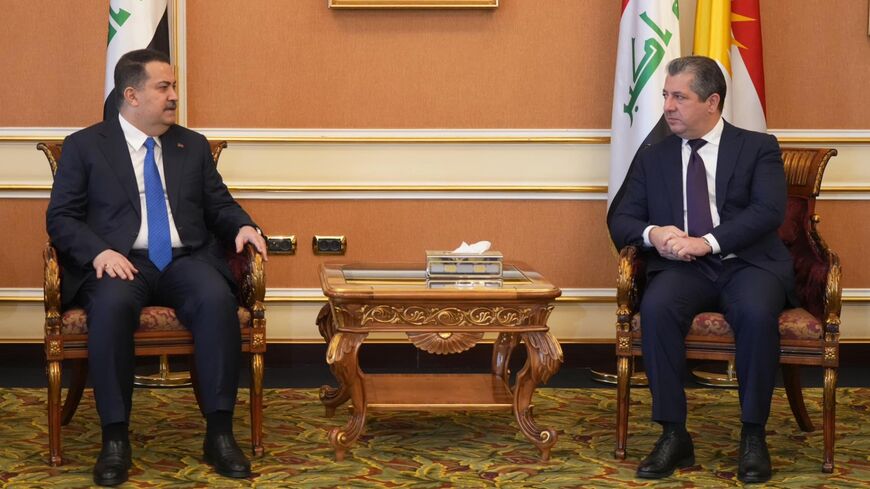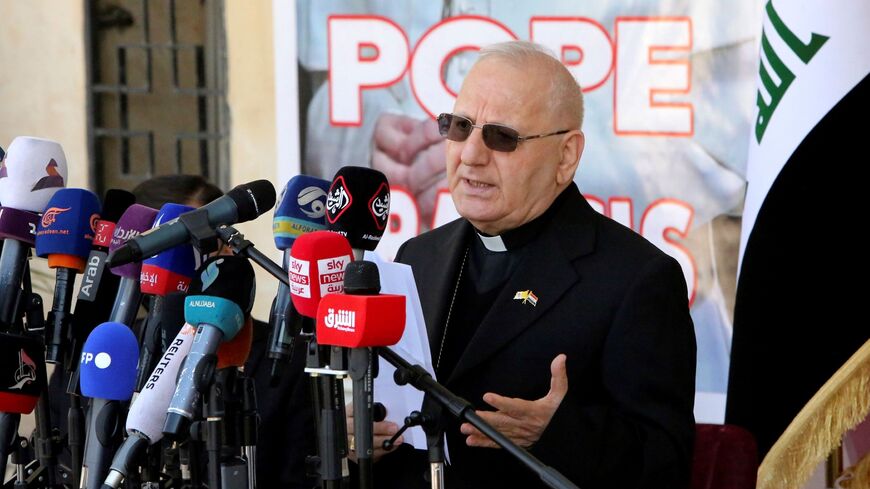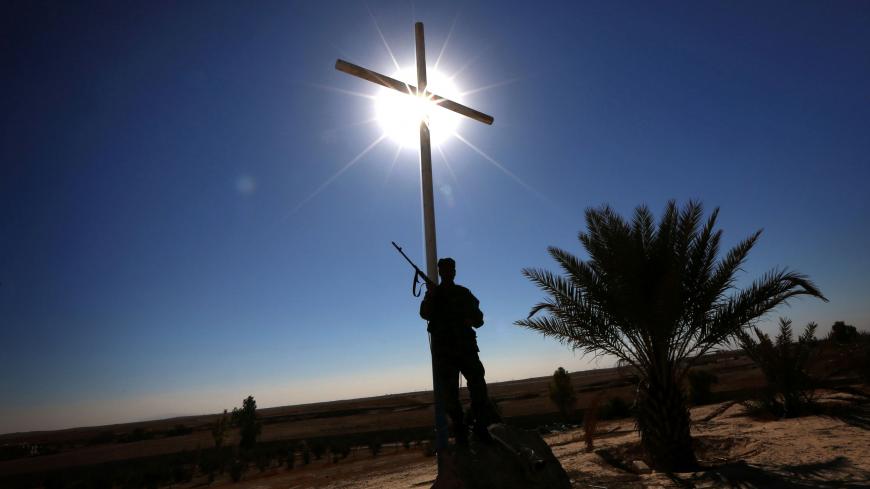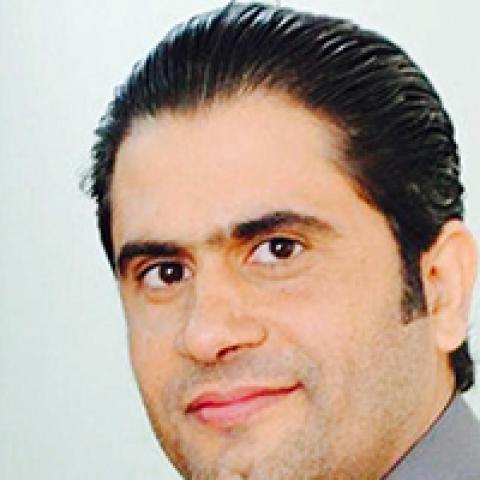Iraq’s Sudani hosts Chaldean Patriarch in Baghdad following dispute
Patriarch Louis Sako moved from Baghdad to Erbil last year after the state revoked a decree recognizing him as head of the Chaldean Catholic Church, a move related to a dispute with the pro-Iran militia Babylon.
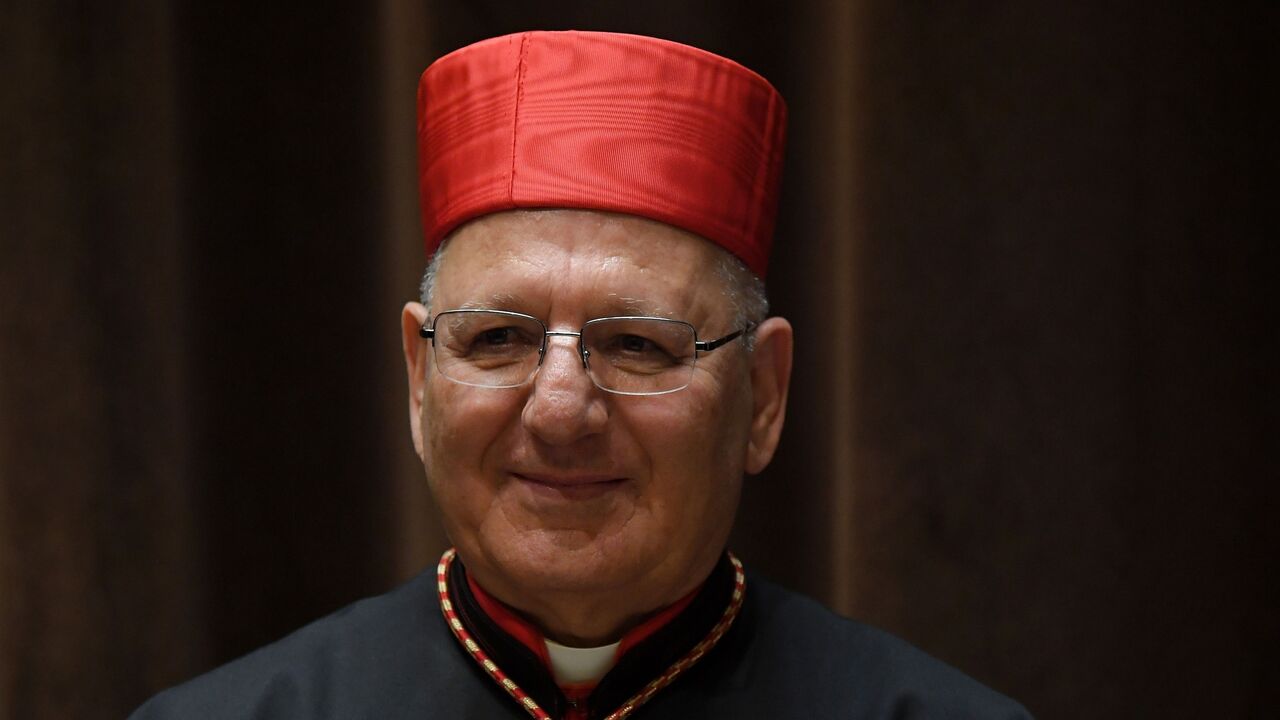
The leader of the Chaldean Catholic Church in Iraq called for more protection of minorities during a meeting with Prime Minister Mohammed Shia al-Sudani on Thursday.
The visit to Baghdad is Patriarch Louis Sako’s first since relocating from the city last year over a dispute involving a pro-Iran Christian group.
Sako, who heads the church, was welcomed by Sudani for a sit-down in Baghdad. The two discussed “general conditions in Iraq” and “stability” in the country, according to a statement published by the official Iraqi News Agency.
رئيس مجلس الوزراء السيد محمد شياع السوداني يستقبل زعيم الكلدان في العراق والعالم، غبطة البطريرك مار لويس روفائيل الأول ساكو والوفد المرافق له.
— المكتب الإعلامي لرئيس الوزراء 🇮🇶 (@IraqiPMO) April 11, 2024
وعبّر سيادته عن ترحيبه بعودة البطريرك إلى بغداد وأهمية وجوده ودوره، مؤكداً حرص الحكومة على ترسيخ مبدأ التعايش والتآخي بين أطياف المجتمع… pic.twitter.com/C11DorFy0n
Sudani praised the patriarch for making the trip to Iraqi capital, expressing “his pleasure at the Patriarch's return to Baghdad and emphasized the importance of his presence and role, affirming the government's commitment to fostering coexistence and brotherhood among all segments of Iraqi society,” per the statement.
For his part, Sako “stressed the importance of exerting further efforts to enable the government to fulfill its duties towards the Iraqi people, improving their living conditions, meeting their full needs and requirements, as well as addressing the issues of minorities and securing their rights,” the agency reported.
There are around 150,000 Aramaic-speaking Christians in Iraq divided into communities identifying as Chaldean, Assyrian and Syriac. The Chaldean Catholic Church is the largest in the country and is in communion with the Vatican.
Why it matters: The visit is Sako’s first since he relocated from Baghdad to the Kurdistan Region capital Erbil in July of last year. That month, Iraqi President Abdul Latif Rashid revoked a 2013 decree that both recognized Sako as head of the Chaldean Catholic Church and allowed him to administer the Chaldean community’s endowment. Rashid said the decree lacked constitutional basis.
The revocation followed a months-long war of words between Sako and Rayan al-Kaldani, the head of the Babylon Movement armed group and political party. Babylon is regularly described as a pro-Iran group, and Kaldani was sanctioned by the United States in 2019 for alleged corruption and rights abuses. An Iraq expert told Al-Monitor at the time of the revocation that the move was part of efforts by Babylon to undermine the Chaldean patriarch.
Rashid’s decision led to protests in the Chaldean community and prompted Sako to move to Erbil in defiance. He additionally sued the state over the matter, but the Iraqi Federal Supreme Court said in a statement last November that it dismissed the lawsuit.
The dispute between Sako and Kildani did not go away with the revocation. In remarks to reporters in September, Sako called on the Vatican to “take a strong position” on his efforts to regain his status.
The same month, Babylon posted a photo of Kaldani with Pope Francis in Rome, describing the encounter as a meeting between the two. However, the encounter was not planned and occurred during a weekly event that is open to the public, according to a report by the Washington Institute for Near East Policy.
In the December provincial elections, Babylon won all four of the seats allocated to Christians. Babylon additionally holds four out of the five seats allocated to Christians in the Iraqi parliament. Many of the group’s voters are not Christian, however, according to a 2021 report from Chatham House.
In January, Sako called for sectarian militias, including Babylon, to withdraw from Iraq’s Nineveh Plains, the Vatican’s news agency, Agenzia Fides, reported.
Last month, the Chaldean Catholic Patriarchate announced a cancellation of Easter celebrations in solidarity with Sako.
Know more: Sako’s meeting with Sudani comes ahead of the latter’s visit to Washington. The Iraqi premier will meet with US President Joe Biden on Monday for talks on the US troop presence in Iraq.
Tensions between the United State and Iraq are high due to attacks by Iran-backed militias on US forces in the country since the Gaza war, as well as retaliatory strikes from the United States.

